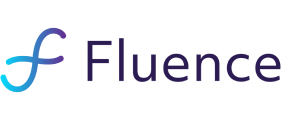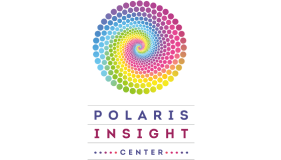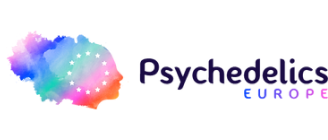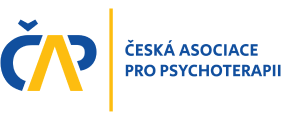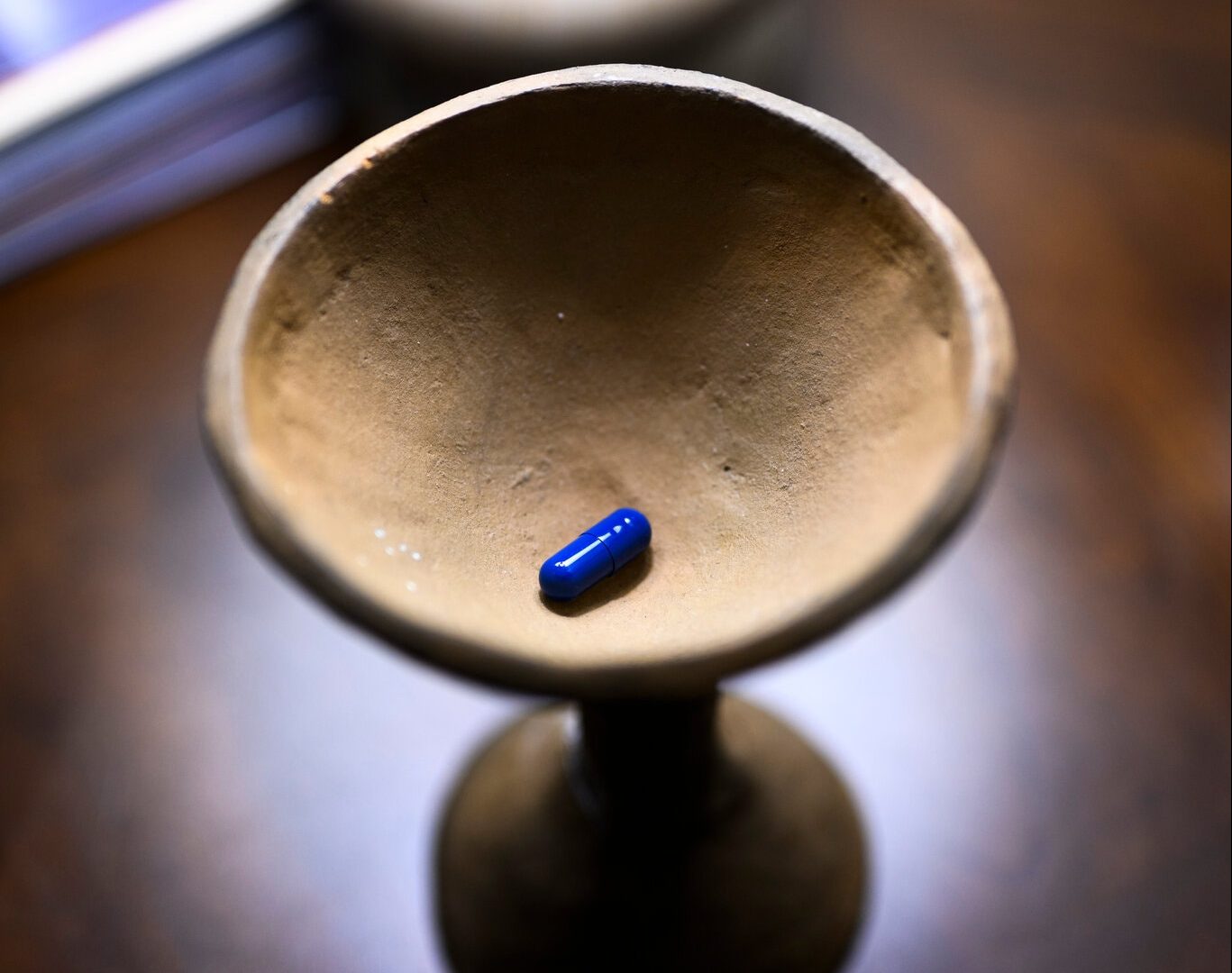We treat mental
illness with
psychedelic-assisted therapy
We also provide classical psychotherapy and psychiatric care.
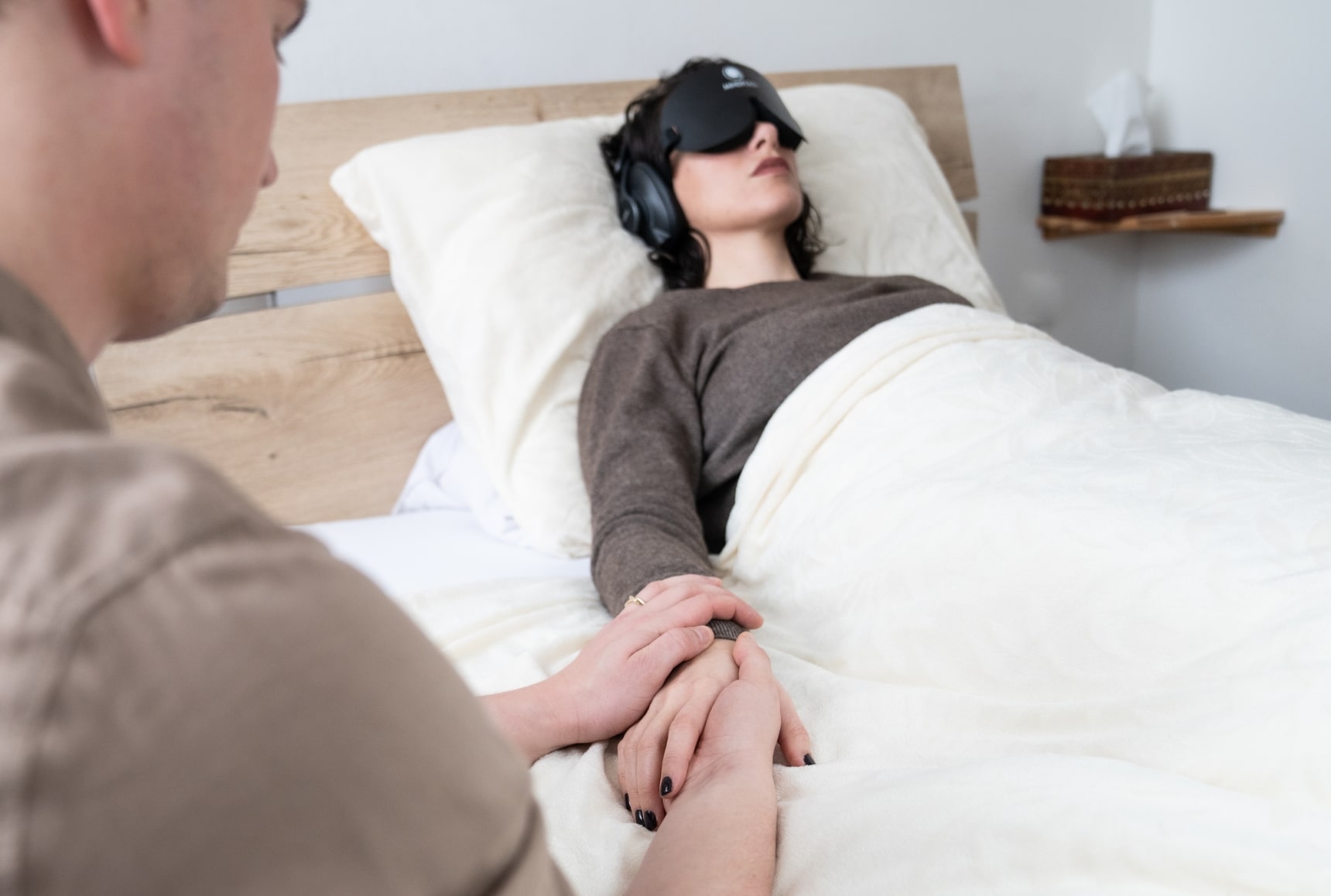
Psychedelics offer new hope
in mental health care.
We are the first clinic in Europe to provide ketamine-assisted psychotherapy. The method is based on psychotherapy complemented with a session or sessions that involve(s) the administration of ketamine in a clinical setting, intended to provide a safe experience of an expanded state of consciousness.
This combination of psychotherapeutic and pharmacological approaches not only makes the treatment more effective, but also manages to go deeper into the client’s psyche so as to help the client gain insight into the root causes of their mental health issues (and perhaps also into the depths of our being as such).
Depression and depressive spectrum disorders
Ketamine-assisted treatment can be effective even in cases of treatment-resistant depression.
Anxiety disorders and OCD
These include social phobia, generalized anxiety disorder (GAD), obsessive-compulsive disorder (OCD) and others.
Post-traumatic stress disorder (PTSD)
Clients suffering from PTSD can also greatly benefit from ketamine-assisted treatment.
Mental anorexia and mental bulimia
Eating disorders are also something ketamine-assisted therapy can help with.

Ketamine treatment proven
by scientists and clients alike
scientific studies confirm
the effectiveness of ketamine-assisted therapy
scientific studies confirm
the safety of ketamine-assisted therapy
specialized facilities in the USA
and several other institutions in Europe already provide ketamine-assisted treatment
of our clients feel a positive change at the end of the treatment
clients have already
undergone treatment

I felt that a change had been set in motion. I learned to let go of things and go with the flow.
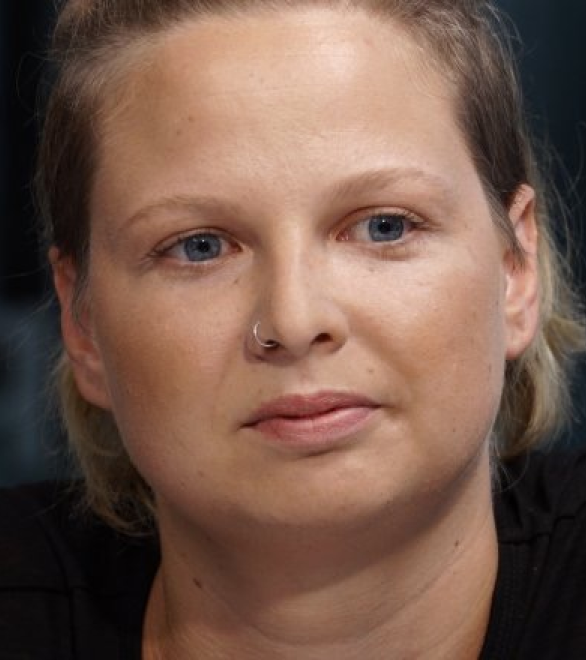
I understand the meaning of what I saw, and now I can connect it to what troubled me.
Welcome
to the psychedelic renaissance
We are a professional team of internationally renowned experts with a client-oriented approach
Our clinic is backed up by leading mental health researchers, neuroscientists, physicians, psychologists and therapists. In addition to deep expertise and professionalism, we guarantee a kind and understanding approach to each individual client. We consider our clients to be our partners on their journey to better mental health.

Why you will feel comfortable with us
Qualified therapists
Many of our therapists have completed unique certified international training courses to ensure their work meets the highest standards.
Client-oriented approach
We treat our clients with kindness and warmth and, above all, we consider them our partners. At Psyon, you can forget about the stereotypical „white coats“ and condescending behaviour.
Comfortable environment
We do our best to make the environment nice and welcoming for all clients. We want our clients to feel as comfortable and safe as possible.
Trust in one's own healing resources
We believe that all of us are naturally equipped with a tendency for healing and growth. Our treatment can facilitate its activation and development.
We provide services
in the following areas
Clients of our partnered insurance providers will receive partial coverage for our services:
Frequently asked questions
Ketamine-assisted therapy proceeds in several steps, from the initial meeting through psychiatric and physical assessments and preparatory meetings to the actual ketamine experience and subsequent integration sessions. You can read what the individual steps entail in more detail on this subpage dedicated to the specifics of ketamine-assisted therapy.
The foundation of ketamine-assisted therapy is to combine the benefits of psychotherapy with the pharmacological effects of ketamine in order to capitalize on the potential of both modalities. Ketamine has a direct anxiolytic and antidepressant effect. At the same time, it induces a state of expanded consciousness – a state of altered perception, thought, and experience, where one often comes into contact with a whole range of emotions and memories that are less accessible in the normal state of consciousness. This experience is then integrated into everyday life.
To put this in simpler terms: taking ketamine alone can make you feel better for a few days; however, your issues are likely to return. If you go to psychotherapy, it is possible that, despite all your efforts, you will not be able to resolve some problems, typically those that are lodged very deep within. And this is something that can happen in a ketamine session. Thus, ketamine-assisted therapy combines ketamine and psychotherapy to achieve longer-term relief and even greater improvement in mental health.
The risks associated with ketamine therapy are very low. Its safety has been demonstrated over more than 50 years of clinical experience in anesthesiology. In addition, the doses used to induce altered states of consciousness are approximately 5–10 times lower. Each client can discuss all possible risks and benefits individually with our doctors. Like any drug, ketamine has its package information leaflet detailing all the information about the medication, including possible risks.
Ketamine does not cause addiction or dependence when administered as part of ketamine-assisted therapy. Our experience as well as that of other institutions shows that thanks to the therapeutic environment the clients do not need to abuse the substance on their own at all. To cause addiction and/or dependence, ketamine would have to be used regularly, practically on an everyday basis, over a very long period of time.
We currently have contracts with the following insurance companies:
- Všeobecná zdravotní pojišťovna (111)
- ZP Škoda (209)
- Vojenská zdravotní pojišťovna (201)
- Česká průmyslová zdravotní pojišťovna (205)
- Zdravotní pojišťovnou Ministerstva vnitra ČR (ZP MV ČR)
- Oborovou zdravotní pojišťovnou (OZP)
Clients of these insurance companies are fully covered for most of our psychiatric outpatient services and psychotherapy. Ketamine-assisted therapy is covered partially but to a significant degree. For detailed information on insurance coverage please see our price list. We are working hard to establish partnerships with more insurance companies. For information on newly acquired contracts, please follow our website or Facebook.
We also have a subsidy program which aims to make our services more accessible to people who cannot afford the standard prices. In this program, a client can apply for a subsidy or reimbursement of the treatment.
As with any treatment, the results of ketamine-assisted therapy are always an individual matter. Here are a few facts that can give you a general idea.
- Three-quarters of our clients feel a positive and beneficial change at the end of treatment. A large number of them feel immediate relief already on the day of administration. This direct pharmacological effect of ketamine may gradually wear off, which is why we do intensive work with the experience in follow-up psychotherapy sessions.
- For some people, the time after the ketamine session can actually be rather challenging due to the resurfacing of difficult mental content that needs to be further processed (e.g. repressed emotions, memories, etc.). This is a normal and natural part of the treatment. Our therapy team will help you work through these issues to improve your mental health.
- After the completion of treatment, however, both of these groups of clients share the belief that what they experienced in KAT has been meaningful for them.
- From the perspective of psychotherapy, ketamine-assisted therapy affects the clients positively also because it facilitates change – put simply, it sets things in motion. This allows the client to see problems from a new perspective, approach previously inaccessible personal topics, and generally move forward.
The decision on admission to ketamine-assisted therapy is always, without exceptions, made by a physician based on a comprehensive assessment.
This is individual for each client. Admission to our treatment is conditional on an initial meeting and then a comprehensive psychiatric and physical examination. Only after these examinations have been completed will a final decision be made as to whether ketamine-assisted therapy is appropriate and safe for the client, and a decision is also made as to the appropriate treatment approach.
In general:
- Indications for ketamine-assisted psychotherapy include depressive syndrome (including various diagnostic units), anxiety disorders (social phobia, generalized anxiety disorder, OCD), posttraumatic stress disorder (PTSD), and eating disorders.
- The main psychiatric contraindications include psychotic illness, family history of chronic psychotic illness, active addiction, acute risk of suicidality, and severe personality disorder(s).
- Other contraindications are serious somatic diseases (mainly cardiovascular and liver-related), pregnancy or breastfeeding, acute infection, allergies to ketamine, and the concomitant use of drugs that could negatively interact with it.
- Other conditions include a minimum age of 18 years, motivation to cooperate therapeutically, and at least one previous treatment attempt (i.e. an attempt to treat the issue such as psychotherapy, pharmacotherapy, etc.).
Put briefly, it is because the use of ketamine to treat certain mental health conditions under clinically controlled conditions is effective, safe, scientifically sound, and legal.
Ketamine has been commonly used in clinical medicine for decades. Its use in psychiatry is warranted mainly due to its direct anxiolytic and antidepressant effect. In our ketamine-assisted therapy, we also utilize the fact that ketamine induces a state of expanded consciousness, i.e. a state of altered perception, thought, and experience. In the follow-up integration sessions after ketamine treatment, we systematically work with the client’s experience.
In the field of mental health (including our ketamine-assisted therapy), ketamine is currently used off-label, i.e. outside of its primary indications. For this reason, ketamine treatment may only be indicated if the client has had at least one treatment attempt for the current episode of illness (e.g., psychotherapy or relevant alternative and/or pharmacotherapy) before signing up for KAT. Off-label use is legal and legitimate if the scientific evidence points to the safety and effectiveness of a medication in an indication for which it has not yet been officially approved. The aim is to allow doctors to help more patients who may benefit from the medication.
